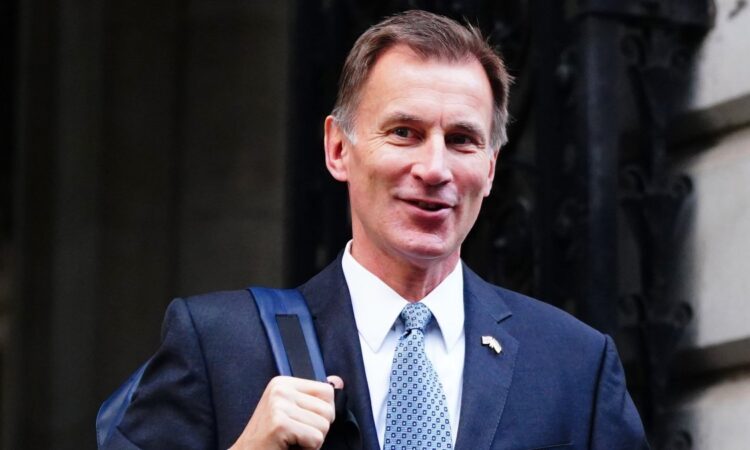
The Government is poised to announce its comprehensive plan for getting more people back into work through pension incentives, increased childcare funding, and in-work health checks.
Ahead of the Budget next week, the Work and Pensions Secretary, Mel Stride, and Chancellor, Jeremy Hunt, have been working on measures to tackle rising economic inactivity across the country and the plan to boost the workforce is going to be central to next week’s statement.
Health checks
One of the big drivers behind the increase in economic inactivity is sickness. According to the Office for National Statistics, the number of working-age adults out of the labour market because of long-term sickness rose from two million in 2019 to about 2.5 million in 2022.
i previously revealed that one proposal floated involved bumping those in employment up NHS waiting lists in order to reduce the number of people out of work. But this would have contravened the NHS model that care decisions must be based on clinical need.
Instead, ministers explored other options for the collaboration of the Department of Work and Pensions (DWP) and the Department for Health and Social Care (DHSC) and the Government is expected to offer support for smaller businesses to have regular Occupational Health checks for staff members in order to detect any illnesses early and reduce the possibility of long-term leave.
Childcare
Ministers have come under increasing pressure in recent months to tackle the high cost of childcare, which is making it difficult for parents to get back into to full-time work. While introducing a widespread reduction in the cost of childcare would likely cost too much, ministers are expected to offer more financial help for those on universal credit.
About 2.1 million households with children were claiming universal credit as of November last year. These parents are able to claim back a proportion of the costs of childcare but the Government has been warned that the cap on the amount available is too low.
i revealed last month ministers are set to increase this to better reflect the current costs of childcare and change the payment method to offer the money upfront, in order to avoid families being left in arrears. The cap on childcare has been frozen since 2006 and is currently £646 for a single child and £1,108 for two children. This could increase by up to a third to reflect the average cost of full-time childcare, which ranges from £983 to £1,139 a month.
Pensions
Mr Hunt is set to promise reforms of the so-called “Doctors’ Tax Trap” on pensions by lifting the personal allowance threshold.
The threshold has been blamed for forcing people in certain professions – in particular, doctors – out of the workforce because it reduces the financial incentive of continuing to work. Mr Hunt is understood to be planning to use the Budget to unveil increases in the limit to tax-free pension savings will see the first substantial increase for a decade.
More from Politics
Mid-life MOT
People nearing retirement age will also be talked out of leaving their jobs under Government plans to keep employees in the workforce for longer.
As revealed in December, pension providers could be required by law to proactively reach out to older workers to discuss their employment status and encourage them to consider whether they can afford to retire or whether they may wish to engage in a different type of work.
They could be implemented alongside proposals to expand existing job centre-style services offering careers advice to those later on in their working life.
Changes to work assessments
The Government is also looking to change the way work assessments are made for people living with a long-term condition or disability.
Ministers want to change the way benefit assessments are made to focus on what work a person can do rather than putting the emphasis on encouraging a claimant to have to prove they are too sick to work.
This could see people with long-term conditions referred for conditionality assessment on what aspects of work they can do rather than being automatically signed off by their GP.






